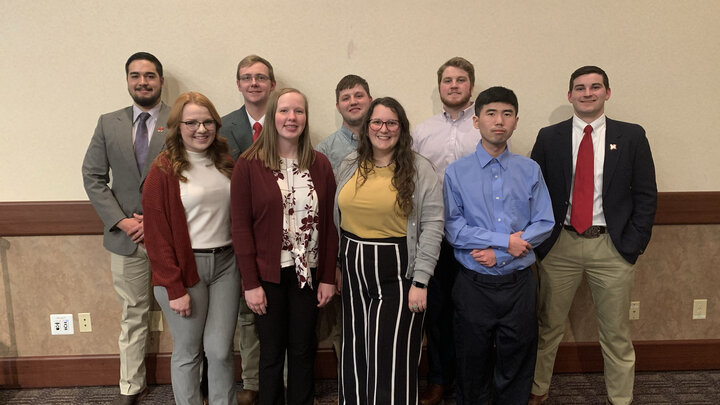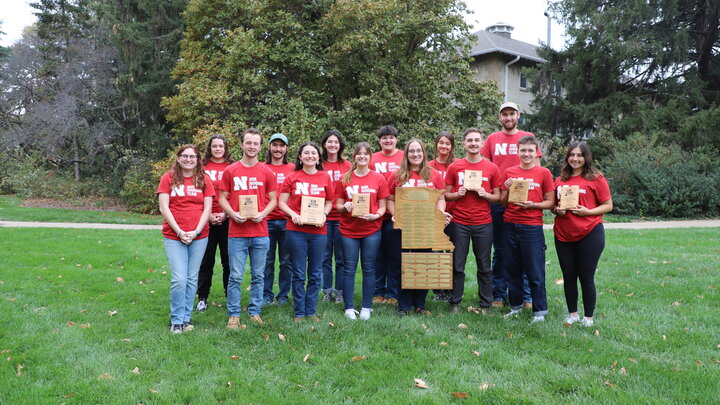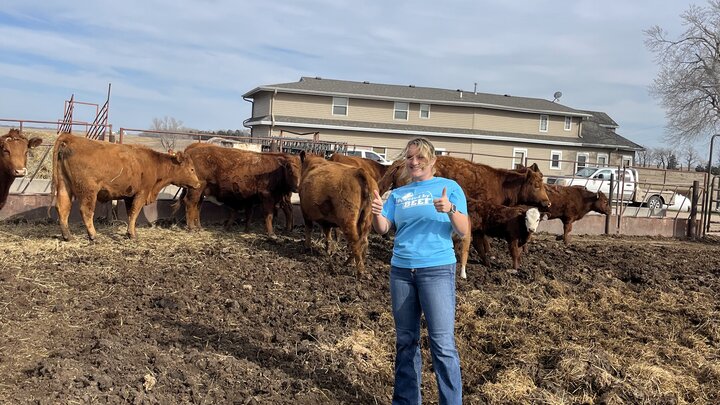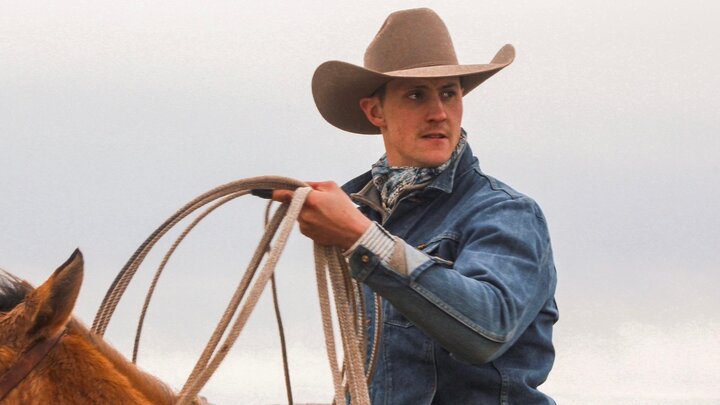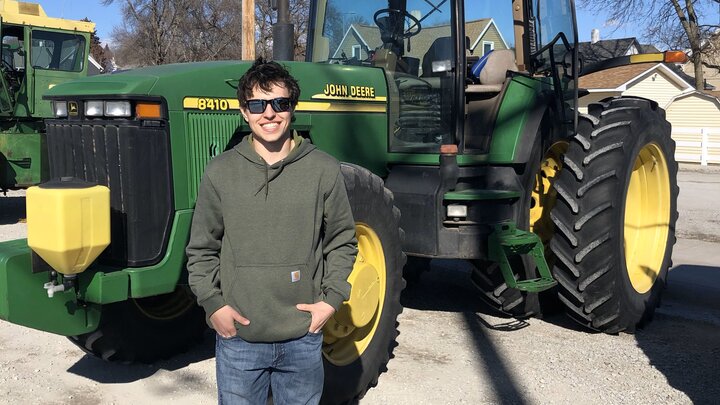Interviews with Corby Cannon, Bryar Gerlach, and Ashley Hahn
It is 4:00 in the morning and the University of Nebraska-Lincoln's Meat Judging team is piling into judging vans. The hard hats with a big red ‘N’ on the side, white frocks, and clipboards are thrown in the back seat. This is an average Tuesday for these meat judging students as they head to a packing plant to compete.
While in their hard hats, meat judging team members will enhance their knowledge of the meat industry which will help them make smart consumer decisions. Additionally, students gain soft skills that will help them in their careers.
A meat judging contest consists of placings classes, written reasons, and industry-relevant skills including yield grading, quality grading, and specification identification. Students place classes of beef, pork, and lamb based on trimness, muscling, and quality.
When making yield grade calculations, students must visually measure fat thickness and ribeye area while considering hot carcass weight and kidney, pelvic, heart fat of the beef carcass. In quality grading, students evaluate the meat's color and texture and overall ribeye marbling in beef carcasses.
Specification identification includes noticing cutting errors to fit the standards of the Institute of Meat Purchase Specifications (IMPS). In the meat industry, different retailers will set guidelines for packers to abide by, so they fit the customer’s expectations for that cut of meat.
Ashley Hahn is the head meat judging coach at the university and a graduate student in the Department of Animal Science. Hahn participated in meat judging through 4-H and FFA in high school, then transitioned into the collegiate meat judging and meat animal evaluation teams at Texas A&M University before coaching at UNL.
“I firmly believe that the skills acquired through meat judging, as well as the interpersonal interactions fostered along the journey, will continue to benefit team members long after they have completed their final scantron,” Hahn said. “My aspiration is for each individual to carry with them a toolkit of invaluable abilities and experiences that will serve them well in their future endeavors.”
Cutting to the Chase
Evaluating cuts of meat prepares students for making informed decisions at the retail counter and in their careers.
Corby Cannon is an animal science major on the pre-vet track at the university with an option in meat science. Cannon believes that meat judging sets contestants up for success when grocery shopping.
“Meat judging will help in the grocery store because sometimes they label something as choice, when it is borderline,” Cannon said. “Because of this, we know which will taste better.”
Bryar Gerlach was on the UNL meat judging team from 2019-2021 and is now a production manager for McLean Beef in York, Nebraska. Gerlach has applied the specification and grading knowledge taught in collegiate meat judging to his current position.
“The skills of knowing specifications when we are cutting up beef and hogs every day has really helped me the most,” Gerlach said. “I know how to make calls on certain cuts and know if it has been cut right or wrong.”
Gerlach is transferring these skills to other employees by teaching them proper meat cutting processes.
As a result of the skills Cannon learned, he has a newfound appreciation for those in the meat packing industry. Such understanding “just gives a greater appreciation of what packers do because they do all that stuff,” he said. “So, meat judging is more involved in the industry than most think.”
From Carcass to Career
The skills that students develop within meat judging are also applicable outside of the cooler. Hahn described how she has witnessed student growth through the university program to set them up for success.
“As students immerse themselves in meat judging, I observe a noticeable domino effect. Each time they engage, they are nudged further beyond their comfort zones, gradually diminishing any initial apprehensions,” Hahn said. “This process fosters increased confidence, enhanced communication skills, and the development of leadership traits.”
Gerlach said that collegiate meat judging helped him to refine his time management skills. Students involved in judging must balance practice and preparation with their standard student responsibilities.
“Meat judging gives students responsibility and motivation,” Cannon said. “We just get certain assignments done on time before we disappear to another state for most of the week.”
The skills of balance and time management help students in both their academic and professional careers.
“Participating in a judging team, particularly in meat judging, equips students with a diverse array of skills beyond meat science proficiency,” Hahn said. “Students emerge from the program with heightened decision-making abilities, honed through the constant evaluation and analysis inherent in judging competitions.”
Key Takeaways
- The meat judging team at the University of Nebraska-Lincoln prepares students for being informed consumers when purchasing meat because of the technical skills they gain.
- Participating on the University of Nebraska-Lincoln's meat judging team gives professional skills to students as conveyed by conversations with head coach Ashley Hahn, alum Bryar Gerlach, and current judging team member Corby Cannon.
